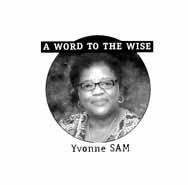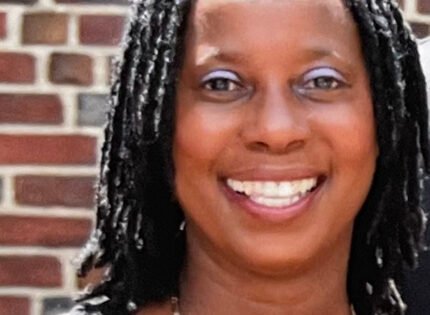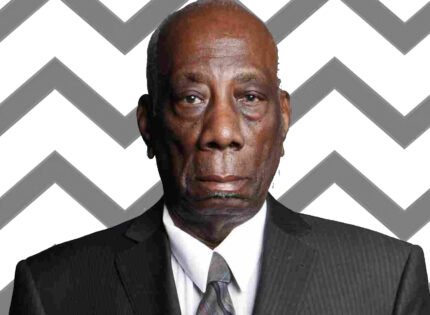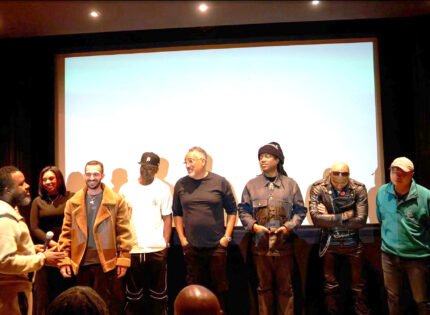The fact that conditions for Blacks are in some ways worse today is damning testimony to ongoing racism, ineffective leadership….

This is a new year and we are still in the 21st century, but based on the present behaviours and goings-on in the Black community, I am forced to ask a compelling but necessary question: How will Blacks navigate increasingly hostile political and economic challenges?
Many of us are more adept at perpetuating rather than alleviating a status quo that is not in our own best interest. And Black leadership generally acts in self-serving ways that do not benefit the community. Therefore, it is imperative that Black people’s mindset and behavior change if things are to be different.
This will likely occur, based on sustained dissatisfaction with existing conditions and a broad willingness to do something about it. A lack of accountability among Black leaders stifles Blacks’ progress. In addition, their usual silence on many important issues is egregious.
Enough said.
The fact that conditions for Blacks are in some ways worse today is damning testimony to ongoing racism, ineffective leadership, and internalized European values that render us, in varying degrees, complicit in our own oppression.
A case in point is the silence of the custodians of the remaining money/funds for the now demolished Negro Community Centre. It is certainly not funny that no one has stepped forward and provided public accountability for the money that the government had given towards the maintenance of the Centre. All that has been taking place is name-calling and game- playing. Some so-called leaders in the Black community are merely feeders motivated by greed and monetary need, and whose short-lived fame has resulted in communal shame.
Many of the issues we face today are fundamentally the same as way back then, but Black leadership’s silence on quality of life issues like education, poverty and employment is reprehensible.
What happened to group-oriented, moral and ethical leadership, foundational for our past victories and successes? The short answer is that kind of leadership has evaporated and is now non-existent. Strong, ethical leadership is critical, but Blacks tend to downplay their significance, rationalizing self-serving agendas, because “whites do it.” The net result is that they overlook, or minimize the need for principled leadership.
Calling a press conference does not make one a leader, nor does a Black face on television or a Black voice on the radio. Do our leaders have a sense of humility? Are they critical thinkers? Do they have vision? Do they have a sense of collective morality? These are questions that must constantly be put to Black leadership with a demand that they better represent the needs and concerns of the community.
And why is accountability so lacking among Black leaders who operate with impunity even though their behavior and decisions may be contrary to the community’s best interests? There is a stark difference between the rhetoric of accountability and practical accountable and responsive leadership necessary for Blacks’ forward progress. Accountability must be all encompassing and include not only leadership but also the community as a whole.
Violence reduction is urgently needed to improve the quality of life in Black communities, especially in the inner cities. And the need extends far beyond inner cities and gangs; it requires reassessing current values, some of which actually perpetuate violence and materialism while minimizing humane, group-oriented solutions.
Violence and values are inversely correlated: the stronger positive human values, the lower the potential for violence.
Education remains the single most important avenue for a child realizing his or her potential; this is especially true and significant in the case of the Black child. A quality education is critically important for low achievers, especially Black children who are disproportionately represented in this group. One does not have to be a rocket scientist to see that public education is failing those students and doing so with impunity. Moreover, Black leadership, parents or the broader community consistently demand that Black students receive an education that prepares them for a career or higher education.
Tragically, systemic negligence continues to be reinforced by the silence, not only of leadership, but also by the parents whose children are most adversely affected. Black students remain “faces at the bottom of the well.” During my pedagogical years this issue was brought to the attention of school boards and administrators by concerned Black educators, especially since Black students were being treated as nothing more than disposable commodities.
Far too many Black kids are falling through the educational cracks. So collectively, we must chart a new course for the future, starting now.
So what is Black leadership’s strategic agenda to deal with these issues? And why aren’t Black people themselves demanding effective, committed leadership that address these problems?
In this New Year, this 21st century, Black leadership, violence reduction and education are just three critical areas presenting challenges that require principled, courageous responses, but have previously received just the opposite.
The Black community must meet its responsibility and demand that its leaders respond to the community’s needs rather than self-serving political agendas. Collectively, we are the ones we have been waiting for.
There are no easy solutions, but Black leadership and ultimately, the Black community itself, must constantly demand answers from those in power. Their unified action and accountability, based on explicit common ground, are indispensable for our future success and very survival.
We clearly haven’t learned.
No more rhetoric, let’s get back to basics!
Leaders are those who make a case.
Aleuta— The struggle continues.















